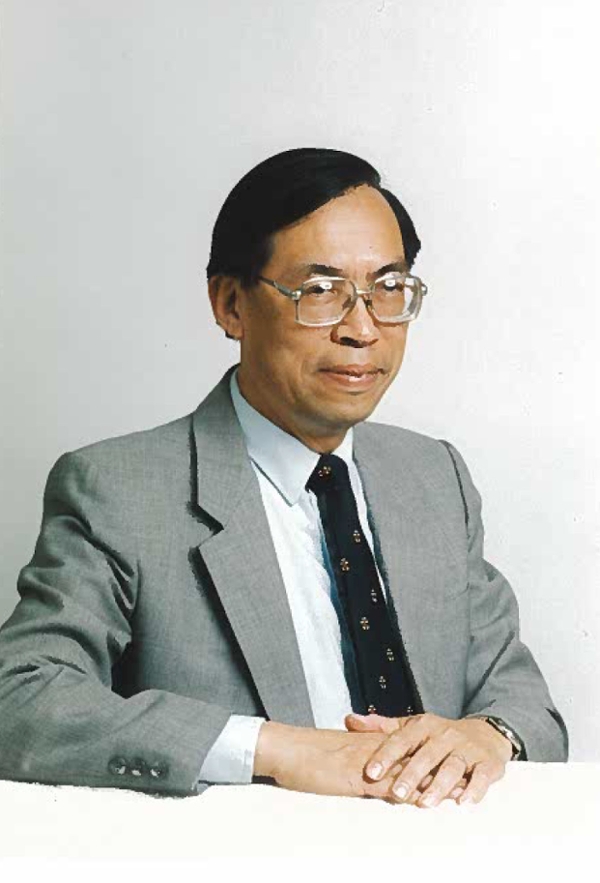
Continuing A Lifetime of Learning
Faculty Spotlight - Che Kan Leong
By Nicole Betker, Education CommunicationsContinuing A Lifetime of Learning
Distinguished professor emeritus in the College’s Department of Educational Psychology and Special Education, Leong’s career has spanned more than five decades. He has impacted the lives of students and faculty members around the world, including in Hong Kong, China, Australia, Canada, U.S.A. and Europe.
Leong’s 85 research papers, 41 book chapters, 10 authored and co-edited academic books and an abbreviated curriculum vitae full of honours, invited lectures, and service are just a glimpse into his long-storied career.
His passion for learning was prompted as a child in Hong Kong. Leong said he kept a pocket Oxford Dictionary with him at all times to ensure he was prepared for any situation that needed translations at his all-English school. It was there he noticed the inter-relationship of words that sparked a more-than-50-year career.
“I always want to learn,” said Leong. “It is the reason why I wanted to become an educator—to help myself and others. One way I could do better is to work hard and get a good education. I continue to study and have been aided with a number of scholarships, including a UNESCO fellowship to study child development in Australia in the 1960s and a Canada Council fellowship to study for a PhD (1972-1974) in Educational Psychology and Special Education at the University of Alberta under the tutelage of Professor J.P. Das.”
Leong arrived at the U of S in 1969 after being recruited by Professor John McLeod—the founding director of the Institute of Child Guidance and Development and concurrent head of the Department for the Education of Exceptional Children. He became a full professor in the college in 1979, professor emeritus in 1998 and distinguished professor emeritus in 2013. He worked in Hong Kong from 1957 to 1969 as a high school teacher of English, Northcote College of Education Lecturer, Research Officer, then acting senior educating officer of the Research, Testing and Guidance Unit in the Hong Kong Department of Education.
“I was very happy to be appointed (at the U of S),” he said. “We had a number of highly motivated students and I was able to work with children on their reading and writing problems. That is what my Queensland University training was in and I could put it to good use.”
His decades of research have focused on morphological and phonological processing in learning to read English and Chinese, reading comprehension, composing and developmental dyslexia. His research has been consistently supported by the Social Sciences and Humanities Research Council of Canada. He continues to serve on the editorial board for a number of research journals on the science of reading, writing and their disorders, including as editor-in-chief (2001-2006) of the inter-disciplinary journal Annals of Dyslexia. He also served for a number of years on the board of the International Dyslexia Association. His work through the Hong Kong Society of Child Neurology and Developmental Paediatrics for the past 25 years has helped to influence changes in educational policy and instruction of Chinese children with developmental dyslexia in Hong Kong.
“I wanted to not just be knowledgeable and to know something, but to also pass it on. I am grateful and appreciative for all of the opportunities I have had.”
After retirement in 1998, Leong continued to be an active member of the faculty at the U of S and as an honourary research professor in the Department of Educational Psychology at the Chinese University of Hong Kong and the University of Hong Kong. He was most recently the keynote speaker at the U of S College of Education Celebration of Research, Scholarly and Artistic Work in April, 2018.
“Education is many faceted,” he said about the future. “Our work with Indigenous people is important, work with children’s language and literacy development is important, work with the promotion of knowledge in science, mathematics and technology is important… I would also like to see more collaborative studies among colleagues within and outside this university.”
For Leong, learning, researching and sharing his knowledge are part of who he is and what he believes in.
“It has truly been an honour and privilege to work with and learn from him” said Dean Prytula. And as for a message to this distinguished academic, she added, “CK, you will truly be missed as a regular member of this faculty, but I look forward to continuing to learn about your accomplishments and contributions. Thank you, Dr. Leong. You leave a formidable legacy.”
Although CK is now sharing his time between Edmonton and Saskatoon to be closer to family, he continues to inspire many through this work.

